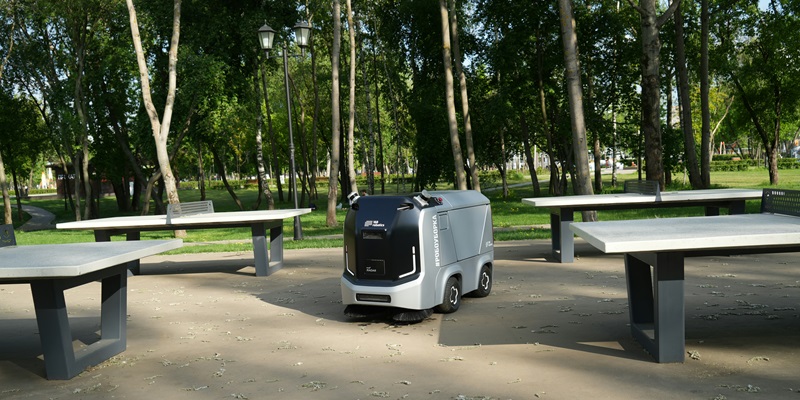In an era marked by unprecedented technological advancements, Skild AI has emerged as a trailblazer in the robotics industry, securing an impressive $300 million during its Series A funding round. Leading this substantial investment are notable players like Lightspeed Venture Partners, Coatue, and SoftBank Group, with Jeff Bezos himself contributing through his fund, Bezos Expeditions. Other significant contributors to this landmark funding include Felicis Ventures, Sequoia Capital, Menlo Ventures, General Catalyst, CRV, Amazon, SV Angel, and Carnegie Mellon University. Founded by Carnegie Mellon alumni Abhinav Gupta and Deepak Pathak roughly a year ago, Skild AI is on a mission to revolutionize how robotics are integrated into various sectors by developing scalable, adaptable AI models.
The ingenuity of Skild AI’s approach lies in its ability to train robots on a diverse array of data points, setting them apart from traditional robots designed for specific tasks. By equipping even low-cost robots with the capability to function effectively in varied settings, the company is addressing a critical need at a time when many industries are grappling with labor shortages. According to the U.S. Chamber of Commerce, there are currently over 1.7 million more job openings than unemployed workers, and the National Association of Manufacturers foresees a shortage of 2.1 million manufacturing jobs by 2030. This context highlights the timeliness and potential impact of Skild AI’s innovative technology.
Addressing Labor Shortages with Robotics
Skild AI’s pioneering technology arrives amid a growing concern about labor shortages in crucial sectors such as manufacturing, logistics, and healthcare. With the U.S. Chamber of Commerce reporting a stark imbalance between job openings and eligible workers, the situation is reaching a critical juncture. Labor shortages, exacerbated by factors like an aging workforce and shifts in societal preferences, have created a pressing need for scalable solutions. Skild AI’s models, trained on a wealth of data points, offer a new paradigm that extends the utility of robotic automation beyond repetitive tasks. This ability to perform a wide range of functions opens new avenues for human-robot collaboration in various work environments, from warehouses to hospitals.
Moreover, the National Association of Manufacturers projects a shortage of 2.1 million manufacturing jobs by 2030, further emphasizing the necessity for adaptive technological solutions. Skild AI’s robots can assist human workers in performing new tasks or take on hazardous duties, thereby enhancing workplace safety and efficiency. Not only do these robots reduce the burden on human employees, but they also make robotic automation a viable option for a broader range of businesses. This democratization of robotics is particularly beneficial for smaller enterprises that may not have the resources to invest in high-cost, specialized automation systems. The infusion of $300 million in funding is a strong vote of confidence from investors in the potential of Skild AI to contribute meaningfully to these sectors and beyond.
The Path Forward for Skild AI
In an era of groundbreaking technological progress, Skild AI stands out as a leader in the robotics sector, securing an impressive $300 million in its Series A funding round. Major investors include Lightspeed Venture Partners, Coatue, SoftBank Group, and Jeff Bezos through his fund, Bezos Expeditions. Other key contributors are Felicis Ventures, Sequoia Capital, Menlo Ventures, General Catalyst, CRV, Amazon, SV Angel, and Carnegie Mellon University. Founded by Carnegie Mellon alumni Abhinav Gupta and Deepak Pathak just a year ago, Skild AI aims to transform robotics integration across multiple industries by developing scalable, adaptable AI models.
What sets Skild AI apart is its innovative approach to training robots on a broad spectrum of data points, unlike traditional robots designed for specific tasks. This enables even cost-effective robots to perform efficiently in various settings, addressing a critical need as many industries face labor shortages. According to the U.S. Chamber of Commerce, there are currently over 1.7 million more job openings than unemployed workers, and the National Association of Manufacturers predicts a shortage of 2.1 million manufacturing jobs by 2030. This underscores the relevance and potential impact of Skild AI’s technology.

